by Anne Mooney | Oct 19, 2015 | Events, Historic Preservation
Worth Protecting
Historic Preservation — Reports from the Front Lines
WP Voice & Casa Feliz to Host Panel Discussion
Historic Preservation — How Does It Work In the Real World?
When: October 29 – 5:30 to 7:00 p.m.
Where: Winter Park Community Center
721 West New England Avenue, Winter Park, FL 32789
Moderator: Beth Kassab, award-winning columnist of the Orlando Sentinel.
Panelists are among Florida’s foremost experts on historic preservation.
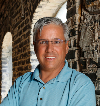 Rick Gonzalez, AIA
Rick Gonzalez, AIA, President of REG Architects in West Palm Beach, is the immediate past chairman of the Florida Trust for Historic Preservation and an accomplished preservation architect. His resume includes the restoration of Donald Trump’s Mar-a-Lago Club and the 1916 Palm Beach County Courthouse.
 Kathleen Slesnick Kauffman, AICP
Kathleen Slesnick Kauffman, AICP, Preservation Chief of Miami-Dade County, oversees 127 individually designated sites, 43 archaeological sites and zones, 5 historic districts, and the 24 municipalities within the county that don’t have their own ordinance. She has served as the executive director of the Florida Trust and as the Historic Preservation Officer in Fort Pierce and Lake Park.
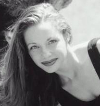 Christine Dalton
Christine Dalton, is the Community Planner and Historic Preservation Officer for the City of Sanford. She is an adjunct professor at Rollins College where she teaches Introduction to Historic Preservation.
It can seem a hollow exercise to argue historic preservation in the abstract. Does it enhance or diminish property values? Is voluntary preservation truly effective, or is it the beginning of open season on historic structures? What, if any, is the tangible value of historic preservation in our communities?
Our Panelists all work within communities that have robust, long-standing historic preservation programs. As Winter Park grapples with the role of historic preservation in our community, our panel of experts will share their real-time experiences with historic preservation.
Please join us at the Community Center October 29 for a lively, informative discussion.
To comment or read comments from others, click here →
by Anne Mooney | Sep 23, 2015 | Historic Preservation
Worth Protecting
Historic Preservation — What Does It Mean for Winter Park?
The Winter Park Voice and the Casa Feliz Parlor Series will present a panel discussion entitled “WORTH PROTECTING: Historic Preservation – What Does It Mean for Winter Park?”
When
Thursday, October 29, 5:30 – 7:00 p.m.
Where
Winter Park Community Center
721 W New England Ave, Winter Park, FL 32789
As Winter Park struggles to balance the seemingly conflicting public benefits of historic preservation and private property rights, we look outside our city for some knowledge born of experience. Come learn from our panel of experts–preservation professionals from around Florida–who can speak to the virtues and the pitfalls of an ambitious preservation program. What has it meant for their cities, and what could it mean for ours?
Moderator
Beth Kassab, Orlando Sentinel Columnist
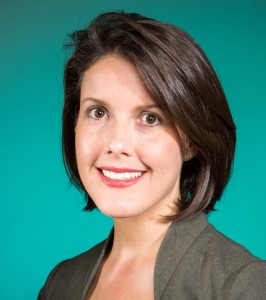 Senior Columnist Beth Kassab is an Orlando native who joined the Sentinel in 2001. She covered local government and the court system as well as tourism and aviation. She wrote the Sentinel’s business column before starting a local column in 2011. As a senior columnist, she tackles subjects ranging from education, transportation and politics to co-existing in Central Florida’s suburbs with bears and coyotes. She also has written about Historic Preservation. Beth won first place in column writing in 2015 from the Florida Society of News Editors. In 2014 she won first place for digital innovation for her series “Central Florida’s Other Best Downtown.” Beth graduated from the University of Florida with a degree in journalism and currently serves on the advisory council for UF’s Journalism College. She lives in Oviedo with her husband and two young children. Her column runs in the Sentinel every Tuesday, Thursday and Saturday and is featured on OrlandoSentinel.com.
Senior Columnist Beth Kassab is an Orlando native who joined the Sentinel in 2001. She covered local government and the court system as well as tourism and aviation. She wrote the Sentinel’s business column before starting a local column in 2011. As a senior columnist, she tackles subjects ranging from education, transportation and politics to co-existing in Central Florida’s suburbs with bears and coyotes. She also has written about Historic Preservation. Beth won first place in column writing in 2015 from the Florida Society of News Editors. In 2014 she won first place for digital innovation for her series “Central Florida’s Other Best Downtown.” Beth graduated from the University of Florida with a degree in journalism and currently serves on the advisory council for UF’s Journalism College. She lives in Oviedo with her husband and two young children. Her column runs in the Sentinel every Tuesday, Thursday and Saturday and is featured on OrlandoSentinel.com.
Panelists
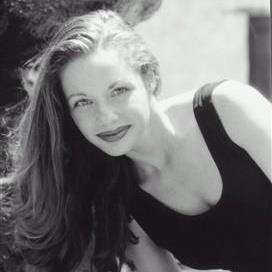 Christine Dalton, Christine Dalton, AICP, is the Historic Preservation Officer and Community Planner for the City of Sanford
Christine Dalton, Christine Dalton, AICP, is the Historic Preservation Officer and Community Planner for the City of Sanford
Ms. Dalton attended Goucher College for an M.A. in Historic Preservation, Rollins College for a B.A. in Environmental and Growth Management Studies, and holds an A.S. in Architectural Design and Construction Technology from Seminole State College. She is the staff liaison to Sanford’s Historic Preservation Board, and is the Seminole County Director for the Orlando Metro Section chapter of the American Planning Association.
Ms. Dalton is an adjunct instructor at Rollins College and teaches Introduction to Historic Preservation in the Environmental Studies and Sustainable Urbanism bachelor degree program. Ms. Dalton previously worked for Glatting Jackson (now AECOM) as an Environmental Technician, and is a member of the American Planning Association, National Trust for Historic Preservation, and Florida Trust for Historic Preservation. In her spare time she loves to sail and travel abroad.
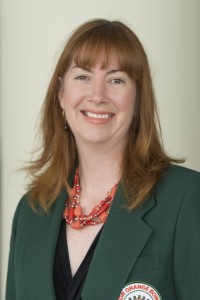
Photo by Christian Cerda-Antomarchi
Kathleen Kauffman, Historic Preservation Chief, Office of Historic & Archaeological Resources, Miami-Dade County
A Coral Gables native, Kathleen Slesnick Kauffman received her undergraduate degree in Historic Preservation from Mary Washington College, in Fredericksburg, VA, and her graduate degree in Historic Preservation from the University of Florida. Ms. Kauffman has served as the Historic Preservation Officer for the Town of Lake Park, FL and the City of Fort Pierce, FL. She authored historic preservation ordinances for both cities. Ms. Kauffman relocated to Tallahassee, FL to serve as the Executive Director of the Florida Trust for Historic Preservation. She has served as the Historic Preservation Chief of Miami-Dade County for the past seven years. She was recently awarded the Henriette Harris Award by Dade Heritage Trust (2015). She is extremely proud of her two daughters Olivia (9) and Julia (6), who keep her busy but entertained, along with their crazy dog Casey, a black Lab/Jack Russel mix.
Rick Gonzalez AIA, Immediate Past President, Florida Trust for Historic Preservation
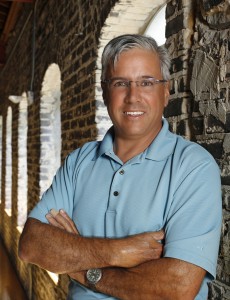 Rick Gonzalez, AIA, founded REG Architects, Inc., with his father Ricardo in 1988 in downtown West Palm Beach. Rick holds two architectural degrees from the Catholic University of America, Washington, D.C. and has studied design in Guatemala, Costa Rica, and Italy. He is currently Vice-Chairman of the Florida Historical Commission and is the immediate past President of the Florida Trust for Historic Preservation. He has served on the Board of the Maryland Institute College of Art, and the Architectural Advisory Boards of the University of Florida and Catholic University of America. His association with high-profile projects like Donald Trump’s Clubs at Mar-a-lago, West Palm Beach, Jupiter and Doral, the 1916 Palm Beach County Historic Court House, “The Harriet” at City Place, and the Lake Worth Beach Casino has led the firm to numerous awards for historic preservation and redevelopment.
Rick Gonzalez, AIA, founded REG Architects, Inc., with his father Ricardo in 1988 in downtown West Palm Beach. Rick holds two architectural degrees from the Catholic University of America, Washington, D.C. and has studied design in Guatemala, Costa Rica, and Italy. He is currently Vice-Chairman of the Florida Historical Commission and is the immediate past President of the Florida Trust for Historic Preservation. He has served on the Board of the Maryland Institute College of Art, and the Architectural Advisory Boards of the University of Florida and Catholic University of America. His association with high-profile projects like Donald Trump’s Clubs at Mar-a-lago, West Palm Beach, Jupiter and Doral, the 1916 Palm Beach County Historic Court House, “The Harriet” at City Place, and the Lake Worth Beach Casino has led the firm to numerous awards for historic preservation and redevelopment.
To comment or read comments from others, click here →
by Anne Mooney | Sep 12, 2015 | Historic Preservation
Board Slogs Through Draft HP Ordinance
Segal Becomes Chairman
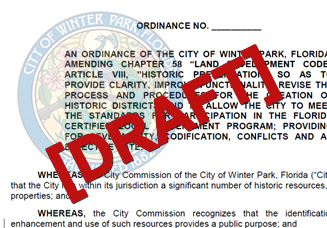 Using some pretty intense persuasive tactics, Mayor Steve Leary prevailed and his candidates for the Historic Preservation Board (HPB), former County Commissioner Bill Segal, Winter Park resident Laura Armstrong and architect Phil Kean, finally won approval from the City Commission in a 3 – 2 vote, with Commissioners Carolyn Cooper and Greg Seidel dissenting.
Using some pretty intense persuasive tactics, Mayor Steve Leary prevailed and his candidates for the Historic Preservation Board (HPB), former County Commissioner Bill Segal, Winter Park resident Laura Armstrong and architect Phil Kean, finally won approval from the City Commission in a 3 – 2 vote, with Commissioners Carolyn Cooper and Greg Seidel dissenting.
Segal to Head HPB
At his first HPB meeting on August 12, Bill Segal was elected Chairman by the four members present – which included Segal himself — replacing Interim Chair Rebecca Talbert. Phil Wood was named Vice-Chair. The fourth member present was Genean McKinnon, who nominated both Segal and Wood. Talbert expressed her willingness to remain as either Chair or Vice Chair, but her motion failed for lack of a second.
Once the question of board leadership was settled, the first order of business was a review of the revisions to the draft Historic Preservation Ordinance that will come before the Commission at the November 9 meeting.
Stone and Hamner Champion Historic Preservation
Frank Hamner of the Citizens’ Group that has been working on the draft ordinance presented the latest version to the HPB. During the arduous page-by-page review, Hamner and City Planning Director Dori Stone found themselves in the curious position of defending historic preservation to the very board that is meant to champion the cause.
HPB Is Not So Sure
Discussion among the board members was more about the disadvantages the proposed ordinance would create for individual homeowners than about possible benefits to the City of preserving historic buildings and districts. “Everything we’re doing here creates an added burden,” said Segal.
Hamner pointed out that, unlike other cities, Winter Park has no means, other than the ordinance, to protect a truly historic home.
Segal Balks at CLG Status
Segal expressed concern about the City’s application to the State of Florida to become a Certified Local Government (CLG). He worried about “extra levels of government” and additional reporting requirements. Despite Stone’s assurances that the City already complies with most of the CLG requirements, and that CLG status would not put any appreciable extra burden on city staff, Segal could not be persuaded that it is a good idea for the City to apply for CLG status. “We just don’t know what we’re buying into,” said Segal.
What Is a CLG?
According to Florida Department of State, “Certified Local Governments are municipal and county governments which have made historic preservation a public policy through the passage of a historic preservation ordinance. Participation in the CLG program allows local governments to partner with other CLGs to share preservation ideas and experiences, as well as the opportunity to compete for CLG grants.”
Stone pointed out that the intention to achieve CLG status has been in the City’s Comprehensive Plan for the past 14 years, though the City has never made formal application to become a CLG.
The CLG grants tend to be small — $50,000 or less – but they have their merits. For instance, the last inventory of potential Winter Park historic assets was done in 2001. Since that time, much has changed. We are told there is no money in the budget to update the inventory, but if Winter Park had CLG status, it would qualify for a grant to complete the inventory. The inventory would cost in the neighborhood of $10,000 and is the type of project for which the grants are intended.
August 19: The Slog Resumes
The August 12 meeting ground to a halt shortly before noon, as Genean McKinnon had to leave. With only three members seated, the board no longer had a quorum and could take no action. They resumed the long slog through the revisions on the afternoon of August 19. At that meeting, Dori Stone informed the board that they would receive a completed draft reflecting all proposed revisions, and that they would vote at their September meeting on whether to approve the ordinance.
Once the final draft has been approved by the HPB, it will go for public hearings in October and then for a final vote by the City Commission at the November 9 Commission meeting.
Winter Park: Unique for Not Being a CLG
So far, language stating that Winter Park will seek CLG status remains part of the existing Historic Preservation Ordinance. Sixty-eight Florida cities and 12 counties are Certified Local Governments. Most Florida cities that are known to have historic resources are CLGs – among them Tampa, St. Pete, Miami, Coral Gables, Sarasota, Orlando, and the list goes on until you get to the Ws, where you’ll find West Palm Beach, Windermere, and Welaka . . . but not Winter Park.
Why not?
There appears to be firm conviction on the part of Mayor Leary, some members of the Historic Preservation Board and certain denizens of the blogosphere that CLG status will introduce yet another layer of government and bureaucracy, which will be onerously burdensome to city staff – though city staff doesn’t seem to see it that way. Planning Director Dori Stone, who would be the local official responsible for administering the CLG program, informed the HPB that the City of Winter Park already fulfills nearly all the requirements for being a CLG, and that any additional staff work would perhaps entail an extra 8 to10 hours per year.
What do the Real CLGs Tell Us?
The folks at Preservation Winter Park were also curious about the amount of work required of CLGs and whether the burden outweighed the benefits. They contacted people with firsthand knowledge, among them local officials who administer the CLG program in West Palm Beach, Lakeland, Miami-Dade and the City of Orlando.
This is what they were told.
West Palm Beach: “In no way has it been a burden. One hour a year of completing a report and emailing minutes.”
Lakeland: “To my knowledge, Lakeland has not been burdened by our CLG status whatsoever.”
Miami-Dade: “It’s never been a burden to be a CLG.”
Orlando: Small amount of staff time for reporting to state and National Park Service.”
Is This How You Would Describe Winter Park?
In her email to Preservation Winter Park, Kathleen Slesnick Kauffman, Historic Preservation Chief of Miami-Dade County, wrote: “It is not a difficult or lengthy process to become a CLG, but the whole point of the program is to provide a benefit to cities or counties that have an expressed interest in saving their heritage, and have made it a priority to do so by having a strong preservation ordinance.”
She continued, “Is this how you would describe Winter Park?”
To comment or read comments from others, click here →
by Anne Mooney | Aug 7, 2015 | News
Cooper to Represent Winter Park at FL League of Cities
Will Receive ‘2015’ Home Rule Hero’ Award
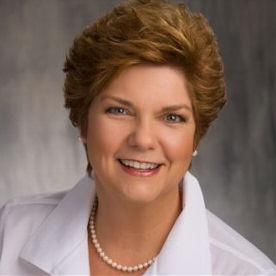
Mayor Steve Leary appointed Commissioner Carolyn Cooper Voting Delegate from the City of Winter Park to the Florida League of Cities Annual Conference, to be held August 13 – 15 in Orlando. Leary announced the appointment at the June 22 meeting of the City Commission.
2015 Home Rule Hero
At the conference, Cooper will be among those to receive the Florida League of Cities “2015 Home Rule Hero” award.
Advocate for Municipal Issues
The work for which Cooper is being honored includes membership on the Growth Management Legislative Committee, the Finance Legislative Committee, Board of Directors for the Tri-County League of Cities, and as a member of the advocacy team that addressed municipal issues in Tallahassee.
Local Voice on What Matters to Cities
“These local government officials earned this prestigious award for their tireless efforts to advance the League’s legislative agenda,” wrote Florida League of Cities Legislative Director Scott Dudley. “These men and women are some of the Florida League of Cities’ biggest advocates for municipal issues, always willing and ready to contact legislators and travel to Tallahassee to be sure a local voice is heard on issues that are important to cities. It is clear that these public servants have devoted themselves to Florida’s citizens and will remain loyal to their cities and state far into the future.”
To comment or read comments from others, click here →
by Anne Mooney | Jul 23, 2015 | Library
Winter Park's Library Should Stay in Our Downtown
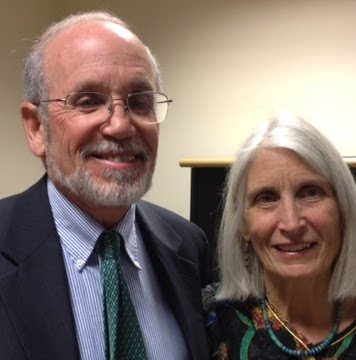 Editor’s Note: Bob and Jill Bendick have lived in Winter Park for almost 20 years. Jill is a retired software engineer. Bob has a background in urban, regional and environmental planning.
Editor’s Note: Bob and Jill Bendick have lived in Winter Park for almost 20 years. Jill is a retired software engineer. Bob has a background in urban, regional and environmental planning.
We have lived in Winter Park for almost 20 years and have long been users and supporters of the Winter Park Library. Jill has spent many Sundays volunteering at the library bookstore.
Good Case for Library Expansion
Through hard work and research the Library Task Force has made a good case for expansion of the library building to serve the people of Winter Park in the 21st Century, but we object to the relocation of the library to either of the two sites in and adjacent to Martin Luther King Park. A new or expanded library should continue to be located in Winter Park’s downtown area.
Base Final Site Decision on Visioning Process
In May we wrote to the City Commission to suggest that a decision on the expansion and potential relocation of the library should await completion of the Winter Park visioning process now underway. Our reasoning was that a new library, as the largest foreseeable investment by the city in a cultural and educational facility, should reflect and reinforce our collective vision for the city’s future.
We suggested that it is reasonable to wait a few months until the completion of the visioning process before making the library siting decision. It is now clear that the Commission is moving forward with the library project without with the benefit of advice from the Visioning Steering Committee.
Should We Jump Ahead of Visioning?
From our perspective this then requires that we jump ahead of the visioning effort to imagine what it might recommend. We certainly cannot predict the whole picture, but one would hope and expect that the Visioning Steering Committee and, ultimately, the City Commission will conclude that the attribute that makes Winter Park so unique in Florida is its graceful, busy, pedestrian and transit-friendly downtown. Maintaining the sense of place and the spirit of community of the downtown area should be a pillar of the City’s vision for its future.
Downtown Character Depends on Community Investment
It is an illusion to believe that the economic and social vitality of this special area will take care of itself without continuing attention from the City government. Florida is littered with downtowns that have, sadly, succumbed to competition from sprawling, automobile-centered commercial development nearby. Winter Park’s downtown will only retain its character and function as the heart of our community by continuing investment by the City in community events, services, public transportation, and public facilities concentrated in that area.
Environmental Quality Makes WP Sustainable
This brings us to the library which is now proposed to be located between what some city officials call the 17-92 and Denning Avenue “corridors”. While this area deserves redevelopment, it is a pedestrian unfriendly, traffic-clogged, and architecturally generic competitor to Winter Park’s historic downtown. A decision by the City to move its most important cultural institution from its downtown to this area can only be interpreted as a decision by the City of Winter Park to move away from what makes this a unique community and toward exactly the kind of development patterns that have damaged so much of Florida. And the fact that the proposed library location takes away precious green space would convey an additional message about the city’s future — that the quality of the environment that makes the city sustainable is unimportant.
Collective Vision of WP in the 21st Century
As we said in our May letter to the City Commission, a decision of this importance should not be made simply from the internal perspective of the library and its advocates, but should take into account the larger framework that is our collective vision for the future of Winter Park in the 21st Century.
Finally, we, and we suspect many others, would likely be supporters of a referendum to pay for a new or expanded library if it were part of a coherent plan to build upon what makes this City such a special place to live. But we will oppose the expenditure of our tax dollars for construction of a library building that undermines the quality and character of life that residents of Winter Park appreciate and enjoy.
To comment or read comments from others, click here →
 Rick Gonzalez, AIA, President of REG Architects in West Palm Beach, is the immediate past chairman of the Florida Trust for Historic Preservation and an accomplished preservation architect. His resume includes the restoration of Donald Trump’s Mar-a-Lago Club and the 1916 Palm Beach County Courthouse.
Rick Gonzalez, AIA, President of REG Architects in West Palm Beach, is the immediate past chairman of the Florida Trust for Historic Preservation and an accomplished preservation architect. His resume includes the restoration of Donald Trump’s Mar-a-Lago Club and the 1916 Palm Beach County Courthouse. Kathleen Slesnick Kauffman, AICP, Preservation Chief of Miami-Dade County, oversees 127 individually designated sites, 43 archaeological sites and zones, 5 historic districts, and the 24 municipalities within the county that don’t have their own ordinance. She has served as the executive director of the Florida Trust and as the Historic Preservation Officer in Fort Pierce and Lake Park.
Kathleen Slesnick Kauffman, AICP, Preservation Chief of Miami-Dade County, oversees 127 individually designated sites, 43 archaeological sites and zones, 5 historic districts, and the 24 municipalities within the county that don’t have their own ordinance. She has served as the executive director of the Florida Trust and as the Historic Preservation Officer in Fort Pierce and Lake Park. Christine Dalton, is the Community Planner and Historic Preservation Officer for the City of Sanford. She is an adjunct professor at Rollins College where she teaches Introduction to Historic Preservation.
Christine Dalton, is the Community Planner and Historic Preservation Officer for the City of Sanford. She is an adjunct professor at Rollins College where she teaches Introduction to Historic Preservation. 
 Senior Columnist Beth Kassab is an Orlando native who joined the Sentinel in 2001. She covered local government and the court system as well as tourism and aviation. She wrote the Sentinel’s business column before starting a local column in 2011. As a senior columnist, she tackles subjects ranging from education, transportation and politics to co-existing in Central Florida’s suburbs with bears and coyotes. She also has written about Historic Preservation. Beth won first place in column writing in 2015 from the Florida Society of News Editors. In 2014 she won first place for digital innovation for her series “Central Florida’s Other Best Downtown.” Beth graduated from the University of Florida with a degree in journalism and currently serves on the advisory council for UF’s Journalism College. She lives in Oviedo with her husband and two young children. Her column runs in the Sentinel every Tuesday, Thursday and Saturday and is featured on OrlandoSentinel.com.
Senior Columnist Beth Kassab is an Orlando native who joined the Sentinel in 2001. She covered local government and the court system as well as tourism and aviation. She wrote the Sentinel’s business column before starting a local column in 2011. As a senior columnist, she tackles subjects ranging from education, transportation and politics to co-existing in Central Florida’s suburbs with bears and coyotes. She also has written about Historic Preservation. Beth won first place in column writing in 2015 from the Florida Society of News Editors. In 2014 she won first place for digital innovation for her series “Central Florida’s Other Best Downtown.” Beth graduated from the University of Florida with a degree in journalism and currently serves on the advisory council for UF’s Journalism College. She lives in Oviedo with her husband and two young children. Her column runs in the Sentinel every Tuesday, Thursday and Saturday and is featured on OrlandoSentinel.com.

 Rick Gonzalez, AIA, founded REG Architects, Inc., with his father Ricardo in 1988 in downtown West Palm Beach. Rick holds two architectural degrees from the Catholic University of America, Washington, D.C. and has studied design in Guatemala, Costa Rica, and Italy. He is currently Vice-Chairman of the Florida Historical Commission and is the immediate past President of the Florida Trust for Historic Preservation. He has served on the Board of the Maryland Institute College of Art, and the Architectural Advisory Boards of the University of Florida and Catholic University of America. His association with high-profile projects like Donald Trump’s Clubs at Mar-a-lago, West Palm Beach, Jupiter and Doral, the 1916 Palm Beach County Historic Court House, “The Harriet” at City Place, and the Lake Worth Beach Casino has led the firm to numerous awards for historic preservation and redevelopment.
Rick Gonzalez, AIA, founded REG Architects, Inc., with his father Ricardo in 1988 in downtown West Palm Beach. Rick holds two architectural degrees from the Catholic University of America, Washington, D.C. and has studied design in Guatemala, Costa Rica, and Italy. He is currently Vice-Chairman of the Florida Historical Commission and is the immediate past President of the Florida Trust for Historic Preservation. He has served on the Board of the Maryland Institute College of Art, and the Architectural Advisory Boards of the University of Florida and Catholic University of America. His association with high-profile projects like Donald Trump’s Clubs at Mar-a-lago, West Palm Beach, Jupiter and Doral, the 1916 Palm Beach County Historic Court House, “The Harriet” at City Place, and the Lake Worth Beach Casino has led the firm to numerous awards for historic preservation and redevelopment.


Recent Comments